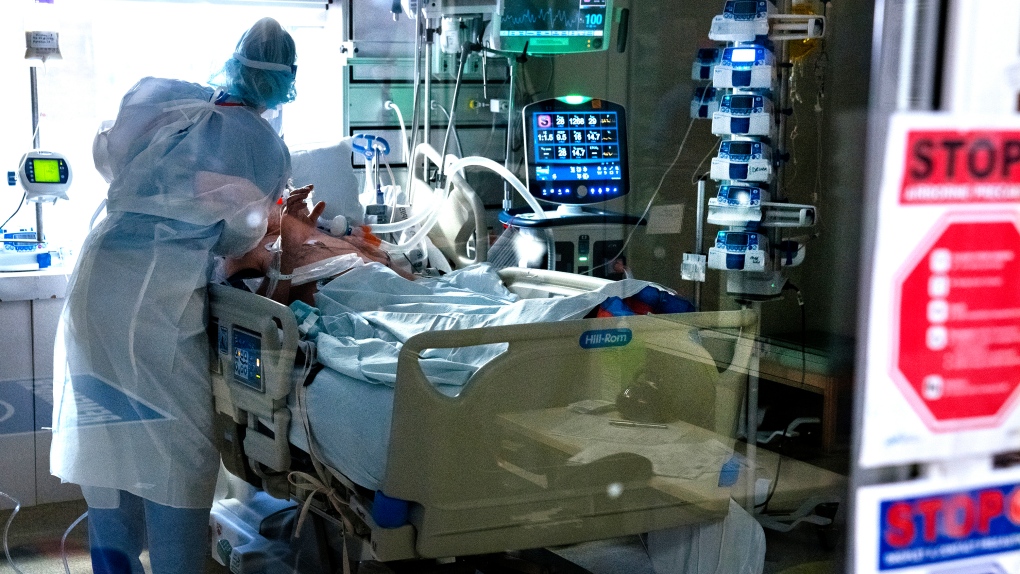The process for nurses who were educated outside of Canada to become licensed to practice in Canada is about to become a lot quicker in many regions of the country — a development that could be a huge boost to an understaffed and overworked health-care system.
Last week, the National Nursing Assessment Services (NNAS) announced the launch of a new credentialing service for international educated nurses (IENS) which will speed the beginning of the licensing process by up to 11 weeks in some provinces.
The NNAS is partnering with regulatory bodies in New Brunswick, Prince Edward Island, Saskatchewan and Manitoba.
This new service ensures that applicants in participating provinces will be issued an advisory report by NNAS within no more than five days of all documents being received.
Prior to this change, reports were issued by the NNAS within 12 weeks of all documents being received — making this a big jump in efficiency.
“NNAS recognizes the urgent need to get more IENs licensed and registered in Canada faster as we face a shortage of health care professionals,” Gayle Waxman, CEO of the National Nursing Assessment Service, told CTVNews.ca in an email Wednesday.
“By providing a simple, fast and safe service that better recognizes the value of IENs, NNAS can play a role in supporting the system to address shortages.”
NNAS is the starting point for IENS hoping to come to Canada and practice medicine in all regions except for Quebec and the territories, according to their website. Nurses start by putting in an application with NNAS specifying the province of their choice, and NNAS reviews and verifies their documents, compares them to Canadian credentials and standards, and puts together an advisory report containing the proper information.
This is then submitted to the necessary nursing regulatory body in order to assess if the IEN in question will receive a license or not.
The new credentialing project, with its five day promise, is being introduced in partnership with the Nurses Association of New Brunswick, the College of Registered Nurses and Midwives of Prince Edward Island (PEI), the College of Registered Nurses of Saskatchewan, and the College of Licensed Practical Nurses of Manitoba.
“In the past, it has been a long, and challenging road for some to practice in Canada,” Waxman said. “Issuing NNAS advisory reports within no more than 5 days of all documents being received will dramatically decrease the time required for one of the key steps in the process for IENs applying in Canada.”
HELPING TO ADDRESS A STAFFING SHORTAGE
NNAS received more than 23,000 applications from IENs hoping to work in Canada last year, and issued 14,000 advisory reports in total.
According to Waxman, this “represents the largest number of reports we have ever issued in a single year.”
At the same time, Canada has been bleeding nurses. Last fall, CTV News obtained figures showing that the number of Canadian nurses getting the paperwork together to work in the U.S. had more than doubled in the last five years.
A report published by the Canadian Institute for Health Information (CIHI) in 2022 also showed that the public sector is losing nurses while the number of nurses increases in the private sector, with more than 600 registered and licensed practical nurses leaving long-term care between the first and second years of the pandemic.
Speeding up the process of licensing IENS is something advocates have been long been calling for.
In November, the Canadian Federation of Nurses Unions listed internationally trained nurses as one of the largest untapped resources in the fight to retain staffing numbers.
The report stated that the process of IENS getting licensed in Canada can be “complex, costly and time-consuming.”
NNAS is hoping that by speeding up at least one aspect of the process with their revamped credentialing service, more IENS will consider coming to Canada.
“By introducing the expedited service, a simpler, faster and safe way to review the credentials of IENs, NNAS is helping to make Canada a more attractive destination for IENs choosing to migrate to Canada,” Waxman
They went through “an extensive process” to figure out how to speed up the process of getting IENs licensed, Waxman said.
“NNAS has also piloted the model over the past several months to demonstrate its effectiveness,” she said. “We believe that NNAS has the infrastructure in place to support this fast turnaround.”
Waxman said that a big part of figuring out how to speed up the process was reviewing and identifying which pieces of documentation were the most essential in assessing an IENs skill level and competency.
They’ve now been able to narrow it down to a few “essential” pieces of documentation instead of looking at every single possible piece.
“NNAS will now be collecting identification documents, the first and most current nursing license held by the applicant, and educational documentation,” Waxman said. “We will also accept the Educational Credential Assessment that was completed by an organization licensed by Immigration, Refugees and Citizenship Canada (IRCC) instead of transcripts, provided the regulator agrees. This will introduce an important efficiency and save applicants time and money.”
Waxman added that the new approach also speeds things up by comparing education “at a country or institutional level rather than at the level of the individual,” to get the advisory reports made faster.
NNAS doesn’t take part in the decision-making process for issuing licenses themselves, so this doesn’t mean that any requirements to obtain a license have actually changed.
“Only nursing regulatory bodies have the authority to decide whether an application is successful,” Waxman said. “NNAS supports this role.”
It’s unclear if this program could come to more provinces in the future, but Waxman said that they look forward to “partnering with regulatory bodies to take advantage of this more efficient process that is accessible to IENs and supports regulators to protect the public.”








































